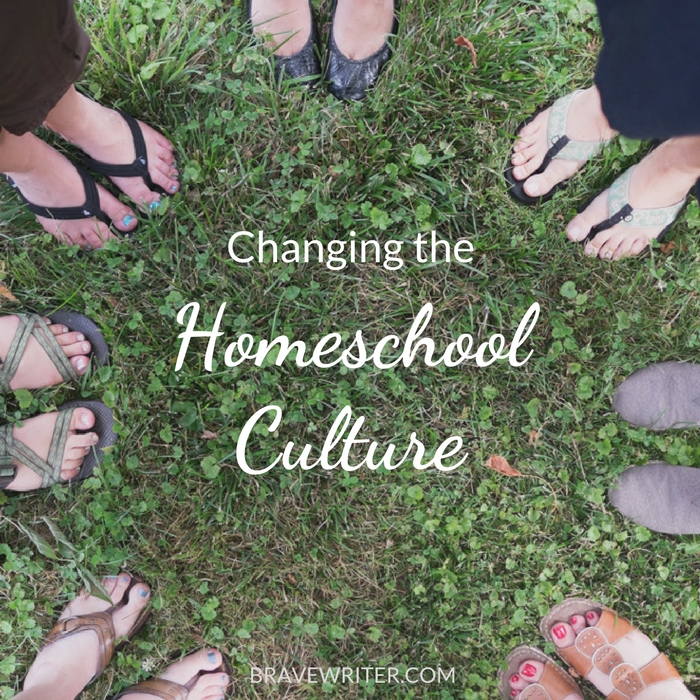Changing the Homeschool Culture

Image taken at the 2016 Brave Writer Retreat by the lovely Alli Parfenov.
Are you sick of the homeschool culture where toeing an ideological line is the way to membership in the community?
Ever wish the nit-picking about which words you’re allowed to use to describe how you home educate would stop?
Are you tired of hiding half of what you do (or don’t do!) in order to “fit in” with a specific group of homeschoolers?
Do you feel guilty that you bought into a philosophy and then modified it or adapted it or ditched it? On the other hand, you still want to hang onto the friends you made in that community yet worry what they’ll think of you if they *knew* how things really were in your house?
You can change the homeschool culture. You can be a part of the movement that brings hope, support, and optimism to homeschool.
Here’s how.
1. Welcome the outcasts.
Lots of parents feel like homeschool misfits. They use tutors, or online cyber school. They have one child in school and three at home. They haven’t doubled-down on a religious viewpoint or a specific educational philosophy and want to simply find a few friends.
Make friends with these families! They need you! You need them! You may be them! Keep all educational options on the table as you never know when you may need/want to make a change.
2. Cheerlead your friends.
Be the kind of homeschool colleague that sees the heart behind the effort. We all want someone to see how much we care and how hard we’re trying. It’s painful to share about what excites you only to see the person in front of you wilt or lose the smile. Be the person who says, “I’m excited for you! I can’t wait to see how X turns out!” (even if X is the thing you swore you’d NEVER do with your kids).
3. Read widely.
Expand your own understanding of education. You owe no homeschool expert total allegiance. In fact, it is your obligation to think critically about any educational philosophy you adopt, consider, explore. Know enough about a variety of educational options so that when you do make friends with someone within that belief structure, you can find common ground in vocabulary and in understanding why that particular strain has a contribution to make to the conversation about education.
If you start with these three tips, you will create space for diversity, for personal growth, and for lasting friendships.
Everyone wants to be included in the discussion about homeschooling and we ALL have contributions to make. Be interested, curious, hopeful, supportive, and kind.
After all: aren’t these the virtues we want to cultivate in our own children?


















